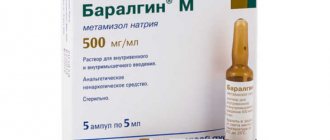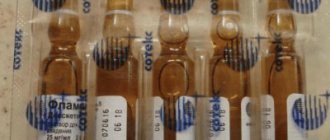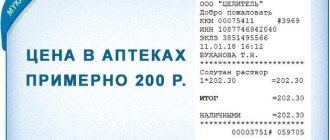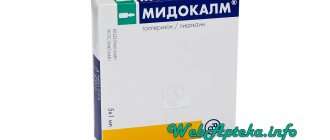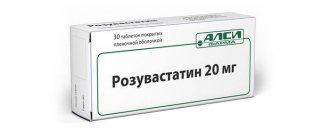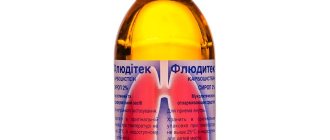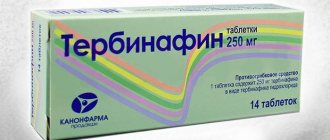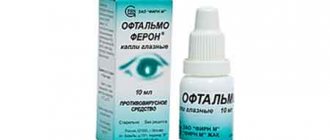25125
Author of the article
Evgeniy Nikolaevich Konoplev
Reading time: 4 minutes
AA
Prozerin is a drug that is widely used in the treatment of many pathologies of internal organs and has unique properties. Instructions for the use of Proserin injections intramuscularly and subcutaneously provide for the administration of the drug in case of violation of internal organs and systems. It is especially often prescribed for pathologies of the digestive and respiratory systems.
Description of the medicine
The drug "Proserin" is produced in such a dosage form as a solution for parenteral administration, which is colorless and transparent. The main active ingredient of the drug is prozerin; its content in one milliliter is 0.5 mg. The auxiliary component is injection sterile water.
The Prozerin solution for parenteral administration is produced in glass ampoules of 10 milliliters, packaged in blister strips. The cardboard pack includes one blister pack with ampoules, as well as instructions for use.
Composition and release form
The pharmacological agent is available in the form of tablets and solution for injection. The second option is more popular in therapy. The active component is neostigmine methyl sulfate , due to which the therapeutic effect is achieved. There are also additional substances in the composition :
- potato starch;
- calcium stearate;
- sucrose;
- talc.
The tablets are packaged in cardboard boxes, each of which can contain 2 blisters of 10 pills. The solution, in addition to the main component, contains an auxiliary component in the form of prepared water. It is packaged in 1 ml ampoules. The ampoules are made of ordinary glass, the liquid itself is transparent and colorless, odorless.
There should be no sediment at the bottom of the ampoule. There are 10 pieces in a cardboard box. The cost of the medicine starts from 25 rubles per pack of tablets.
The price of Prozerin injections ranges from 30-35 rubles for 10 ampoules. You can purchase the drug with a special medical prescription.
Pharmacodynamic and pharmacokinetic properties
According to the instructions for use for “Proserin” in ampoules, the main active ingredient of the solution for parenteral administration is an acetylcholinesterase blocker. It has a similar molecular structure and can bind to it, inhibiting activity for a period of several minutes to several hours. Due to inhibition of the activity of the cholinesterase enzyme in neuromuscular or interneuronal synapses, acetylcholine accumulates, which causes the following biological effects to develop:
- increasing the functional activity of the sweat, bronchial, gastrointestinal and salivary glands;
- activating effect on the striated muscles of the skeleton;
- miosis (constriction of the pupil);
- decreased pressure inside the eye;
- spasm of bronchial smooth muscles with their narrowing;
- stronger peristaltic movements of the intestinal walls, hollow structures of the urinary system with relaxation of the sphincters.
What is the effect of Proserin?
After parenteral administration, the active substance of the drug accumulates in the blood for a short period of time and is distributed in the tissues. This component almost never crosses the blood-brain barrier and does not affect the central nervous system. Metabolized in the liver, where inactive breakdown products are formed, they are predominantly excreted from the body with urine (80%).
What else does the instructions for use with Proserin injections (intramuscular) tell us?
Pharmacological properties
After oral administration or parenteral administration, the active component of the drug has a pronounced stimulating effect on all tissues and organs. As a result, the conductivity of nerve impulses to the affected areas improves and metabolism is normalized.
The drug helps reduce blood pressure, heart rate, and intraocular pressure. At the same time, it stimulates the secretion and liquefaction of mucus in the bronchi and lungs, increases the production of digestive enzymes and gastric juice. As a result, the acidity level increases significantly.
The drug activates the salivary and sweat glands, which contributes to the development of hypersalivation and hyperhidrosis in the patient during its use. Prozerin also causes bronchospasm as a protective reaction of the body. It is noted that after ingestion, the active substance is quickly absorbed and processed in the liver.
Excreted through the kidneys. About half comes out unchanged, the second half is released in processed form.
In what cases is it prescribed?
The solution for parenteral administration is used in the field of neurology for the treatment of various pathological conditions, which include:
- myasthenia gravis (severe muscle weakness) of various origins;
- defects in motor muscle activity and paralysis after brain injury, ischemic or hemorrhagic stroke;
- atrophy or neuritis (inflammation) of the optic nerve;
- a clear decrease, including complete absence, of smooth muscle tone of the bladder or intestines (atony);
- symptomatic elimination of the consequences of using muscle relaxants with defects in the motor activity of skeletal striated muscles.
The indications for use of Proserin injections do not end there.
In addition, the medicine is used in complex treatment during the recovery period after meningitis (pathology of the meninges), poliomyelitis (virus damage to the structures of the nervous system with the formation of flaccid paralysis of the striated muscles), encephalitis (the process of inflammation of the brain structures).
Instructions for use for Proserin injections (intramuscular) must be strictly followed.
Drug interactions
For myasthenia gravis, Prozerin is prescribed in combination with anabolic hormones and glucocorticosteroids.
Novocainamide, quinidine, local anesthetics, ganglion blockers (pachycarpine hydroiodide), m-cholinergic blockers (including homatropine hydrobromide, methocinium iodide, platyphylline and atropine) weaken the m-cholinomimetic effects of the drug (they are its pharmacological antagonists), which is manifested by increased gastrointestinal motility tract, hypersalivation, constriction of the pupil, bradycardia, etc.
With caution, Proserin should be used simultaneously with choline blockers, in patients with myasthenia gravis - simultaneously with kanamycin, neomycin, streptomycin and other antibiotics that have an antidepolarizing effect, as well as with antiarrhythmic drugs, local anesthetics, general anesthesia and other drugs that disrupt cholinergic transfer.
Neostigmine methyl sulfate is an antagonist of non-depolarizing muscle relaxants (including tubocurarine chloride, rocuronium bromide, atracurium besilate), restoring neuromuscular conduction. In cases where, after the end of anesthesia with the use of non-depolarizing muscle relaxants, muscle weakness and respiratory depression persist, Proserin is used as an antidote to these drugs.
Prozerin is pharmacologically incompatible with depolarizing muscle relaxants (for example, suxamethonium iodide).
Cyanocobalamin, used in large doses, weakens the effect of neostigmine methyl sulfate.
Prozerin reduces the activity of pyridoxine.
Like all cholinesterase inhibitors, Prozerin in combination with laxatives enhances their effect, and with strychnine it significantly increases the tone of the vagus nerve.
Antiarrhythmic drugs (β-blockers) and neostigmine methyl sulfate are synergistic (bradycardia worsens).
Prozerin combines well: for cardiovascular disorders - with niketamide, for neuritis - with thiamine, for muscular dystrophies - with calcium gluconate and adenosine triphosphate.
Ephedrine potentiates the effect of neostigmine methyl sulfate, so it is administered together with Proserin during myasthenic crises.
Contraindications for use
The use of the solution for parenteral administration is contraindicated in certain physiological or pathological conditions of the body. These include:
- excessive sensitivity to any of the substances in the product;
- increased motor activity of skeletal striated muscles, or hyperkinesis, as well as epilepsy;
- disturbance of the rhythm of heart contractions (arrhythmia), decreased frequency of heart systole (bradycardia);
- ischemic heart disease, characterized by impaired nutrition of cardiac structures, angina pectoris;
- obvious atherosclerotic inflammation of arterial vessels, which is characterized by the deposition of cholesterol in their walls;
- thyrotoxicosis – a significant increase in the functional activity of the thyroid gland with an increase in the intensity of its hormonal synthesis;
- peptic ulcer of the duodenum and stomach, characterized by the formation of defects in their wall;
- peritonitis (inflammatory process of the abdominal layers);
- a mechanical barrier to the movement of food masses in the digestive tract or urine in the hollow structures of the urinary system (mechanical obstruction);
- the time of acute infection with intoxication of the body, especially in weakened children;
- prostate adenoma, characterized by an increase in the tissue volume of the prostate gland, or hypertrophy), with difficulty in urinating;
- simultaneous use with drugs of such a pharmacological group as depolarizing muscle relaxants.
Before prescribing a solution to a patient for parenteral administration, the specialist must make sure that there are no contraindications.
Instructions for use for “Proserin” (intramuscular injections)
The medicine can be administered intramuscularly. How often can Proserin injections be given and what is the duration of treatment? There is no exact answer to these questions, since everything is determined by the disease. On average, the following recommendations are available.
The maximum daily dose for myasthenia gravis is 0.5 mg. Usually the course is long, the routes of administration are constantly changing during it. In acute myasthenic crisis, when there is difficulty breathing, 0.5 to 1 milliliter is administered intravenously. When the condition has stabilized, the solution is administered subcutaneously to the patient.
In the treatment of postoperative atony of the gastrointestinal tract or genitourinary system, as well as as a preventive measure against urine retention after surgical interventions, the drug is administered intramuscularly at a dose of 0.25 mg. The treatment course in this case lasts three to four days after they are carried out.
When using Proserin as an antidote to muscle relaxants, the medicine is administered intravenously from 0.5 to 2 mg. If necessary, injections are prescribed again. The maximum dosage for children is 0.05 mg for one year of life. Treatment is carried out exclusively in a hospital, it is carefully monitored by a doctor. If it is necessary to administer large quantities of Proserin to the patient, atropine sulfate is simultaneously administered to prevent undesirable effects.
The recommendations described above are average values, that is, they are not unambiguous. Based on the individual characteristics of the body, the specialist can change the duration of the course, doses and methods of administration. Proserin can interact with other medications and change their effect, so if you are currently or in the recent past taking other medications, you should inform your doctor about this before starting treatment.
Indications for use
For all dosage forms of Prozerin:
- Myasthenia gravis;
- Paralysis;
- Motor disorders after brain injury;
- The recovery period after encephalitis, poliomyelitis, meningitis.
Additionally for injection solutions:
- Atony of the gastrointestinal tract and bladder (prevention and treatment);
- Neuritis;
- Weakness of labor (for stimulation);
- Muscle weakness and respiratory depression (as an antidote after anesthesia using non-depolarizing muscle relaxants);
- Optic nerve atrophy.
Side effects
As the instructions for use for Proserin in ampoules indicate, pathological reactions of various systems and organs may develop during the use of the solution:
- Digestive system: pronounced increase in the tone of the smooth muscles of the surface of the hollow organs, reaching their spasm, hypersalivation (strong production of saliva), flatulence (bloating), vomiting, uncontrolled bowel movements and diarrhea.
- Heart and vascular system: irregular heartbeat (arrhythmia), tachycardia (increase) or bradycardia (decrease) in heart rate, atrioventricular block (blockade of the heart impulse through the atrioventricular node), decreased blood pressure (hypotension). If the case is severe, then asystole, that is, cardiac arrest, may occur.
- Nervous system: disturbance of consciousness, reaching its absence, dizziness, weakness, headache, drowsiness, dysarthria (speech disturbance), twitching of some skeletal muscle groups, feeling of numbness in the lower extremities.
- Respiratory system: deterioration of external respiration, reaching apnea (stop), the appearance of shortness of breath, pronounced bronchial constriction caused by increased tone of the smooth muscle surface (bronchospasm), increased secretory activity of the bronchial glands.
- Urinary system: involuntary release of urine, frequent urination.
- Sense organs: lacrimation, blurred vision, miosis (obvious constriction of the pupil).
- Musculoskeletal system: arthralgia (joint pain).
- Allergic reactions: skin rash, itching, urticaria (changes similar to a nettle burn), severe swelling of soft tissues localized mainly in the area of the external genital organs and face (angioedema), pathological systemic reaction, when blood pressure critically decreases and multiple organs appear failure, that is, anaphylactic shock.
If adverse symptoms develop, this is grounds for stopping the use of the drug or adjusting its dose by the treating specialist. It is possible for a doctor to replace Proserin with an analogue.
Contraindications and side effects
The drug is not used for severe epilepsy, a tendency to allergies or hypersensitivity to its main component . There are other contraindications that will become an obstacle to including it in the therapeutic course:
- Severe form of atherosclerosis, arrhythmia, bradycardia.
- Severe intoxication in a child as a result of a severe pathological process.
- Intestinal obstruction after surgery or other causes.
- Acute stage of infectious diseases.
- Peptic ulcer in the acute stage with the threat of perforation of the stomach wall, peritonitis.
- Thyrotoxicosis of varying severity.
- BPH.
- Severe form of bronchial asthma with frequent attacks.
- Advanced stage coronary heart disease.
If the recommendations are violated, patients may experience a sharp decrease in blood pressure, increased activity of the sweat and salivary glands, and tachycardia and arrhythmia. Changes can be seen during an ECG. Patients report severe nausea, vomiting, headaches and dizziness, constant drowsiness and temporary deterioration in visual function.
Some patients are bothered by shortness of breath and constant secretion of sputum from the bronchi. In severe cases, convulsions begin and the patient loses consciousness. Common symptoms include incoordination and involuntary muscle twitching, as well as frequent urge to urinate.
An allergic reaction to the product manifests itself in the form of a rash on the skin of various shapes and sizes, itching, peeling, irritation, and slight swelling. If such symptoms appear, it is recommended to immediately stop using the product. In such cases, the doctor prescribes specific treatment aimed at eliminating negative reactions.
special instructions
Before starting to administer Proserin injections, the doctor must take into account special instructions, which include:
- with parenteral administration of large therapeutic dosages of the drug, an appropriate amount of atropine is prescribed beforehand or simultaneously;
- if surgical intervention or dental procedures are necessary, the dentist or surgeon must be aware of the treatment with Proserin;
- if a cholinergic or myasthenic crisis develops while using the medication, then a differential diagnosis of conditions with similar symptoms must be carried out;
- special caution is required when prescribing to patients after surgery on the digestive system or urinary tract;
- People with concomitant Parkinson's disease must undergo medical supervision when carefully administering Proserin;
- in pediatrics, the drug can only be used in a medical hospital, and there must be constant monitoring;
- the active substance of the drug can interact with a large number of drugs of various pharmacological groups;
- the use of the medication by breastfeeding and pregnant women is possible only for strict medical reasons and after consultation with an obstetrician-gynecologist;
- It is prohibited to engage in potentially hazardous activities that require high speed psychomotor reactions and concentration while using the medication.
The drug "Proserin" is sold in the pharmacy chain only with a doctor's prescription. Self-use is prohibited without the appropriate prescription of a specialist.
Overdose
The dosage of Proserin must be observed.
If the recommended dose is significantly exceeded, a cholinergic crisis occurs due to overexcitation of the corresponding receptors in the synapses. It manifests itself as tachycardia, difficulty swallowing and breathing, bronchospasm, vomiting, high intestinal motility, nausea, involuntary urination, twitching of skeletal muscles, severe weakness, feelings of panic and anxiety, low blood pressure, muscle paralysis, and coordination disorders. In this case, the administration of the drug is stopped. The patient requires symptomatic therapy with mandatory use of atropine in an inpatient setting.
Interactions with drugs
The effect of Proserin is reduced by M-anticholinergic blockers, antiepileptic and antiparkinsonian drugs, ganglion blockers, procainamide, quinidine, tricyclic antidepressants, and local anesthetics. The effect is enhanced by interaction with the drug "Ephedrine". A decrease in heart rate is also possible if the solution is combined with beta-blockers.
Reviews
Proserin is a well-studied and inexpensive drug; it has a good reputation among doctors, and therefore the solution is often prescribed to patients.
People note the following advantages in reviews of Proserin injections: affordable cost and high effectiveness, absence of complications and problems after treatment.
Other patients say that you need to be extremely careful with the medication, as it is not suitable for everyone.
Disadvantages include painful injections and, in some cases, difficult tolerability. Sometimes severe dizziness and nausea occur. The drug is very powerful and, if used incorrectly, can harm the patient. However, when prescribed correctly, it is effective and helps people perfectly.

